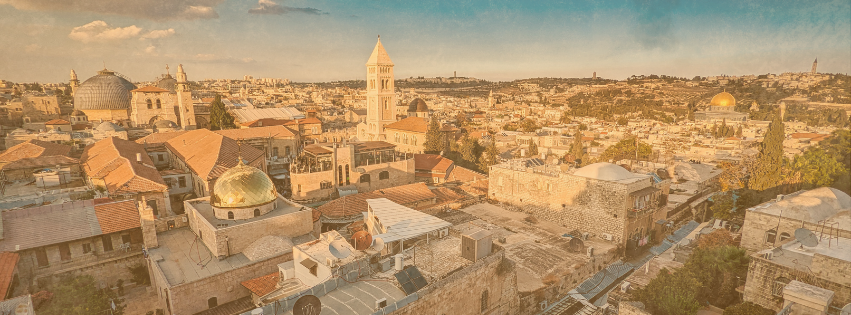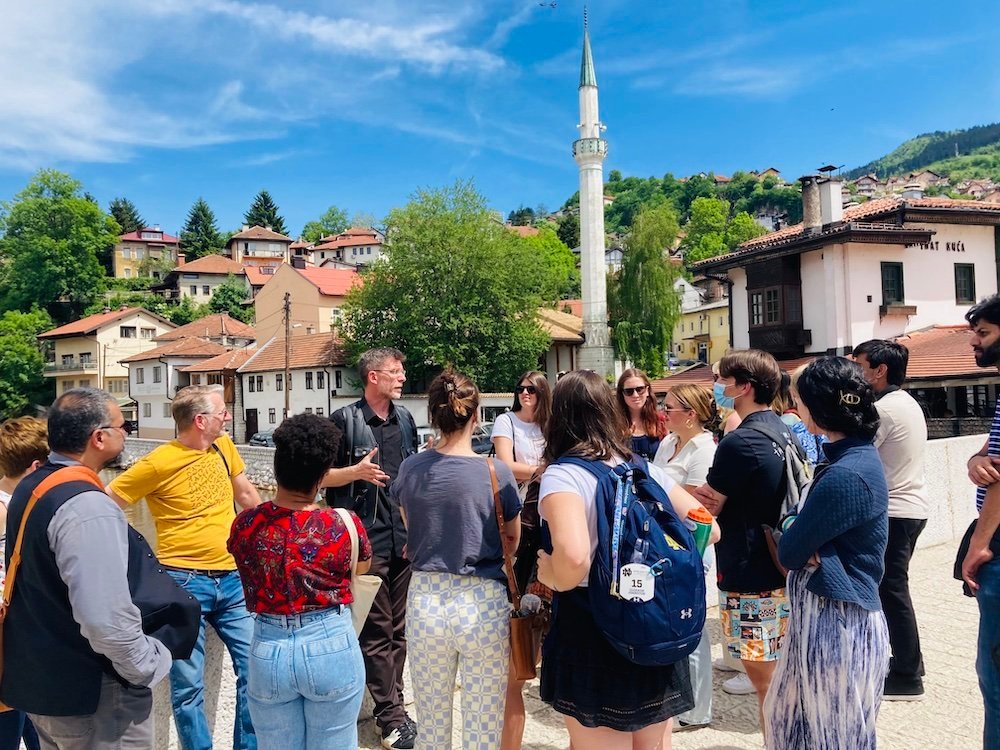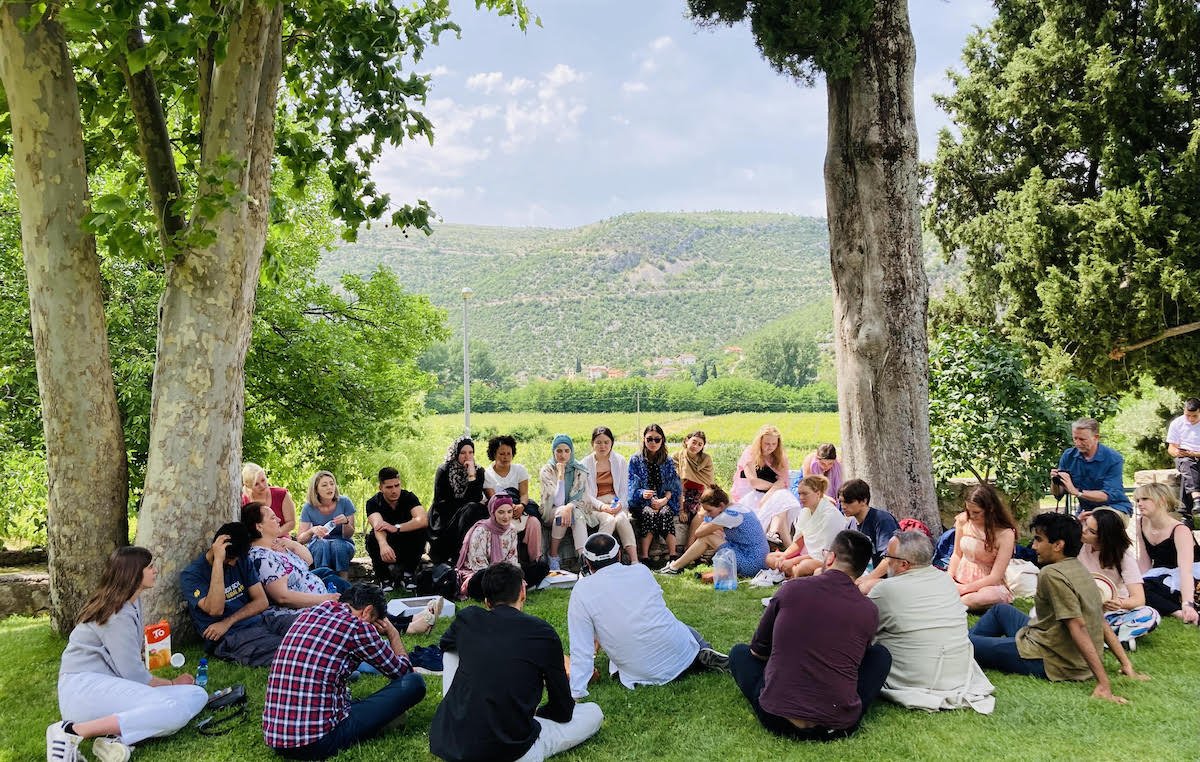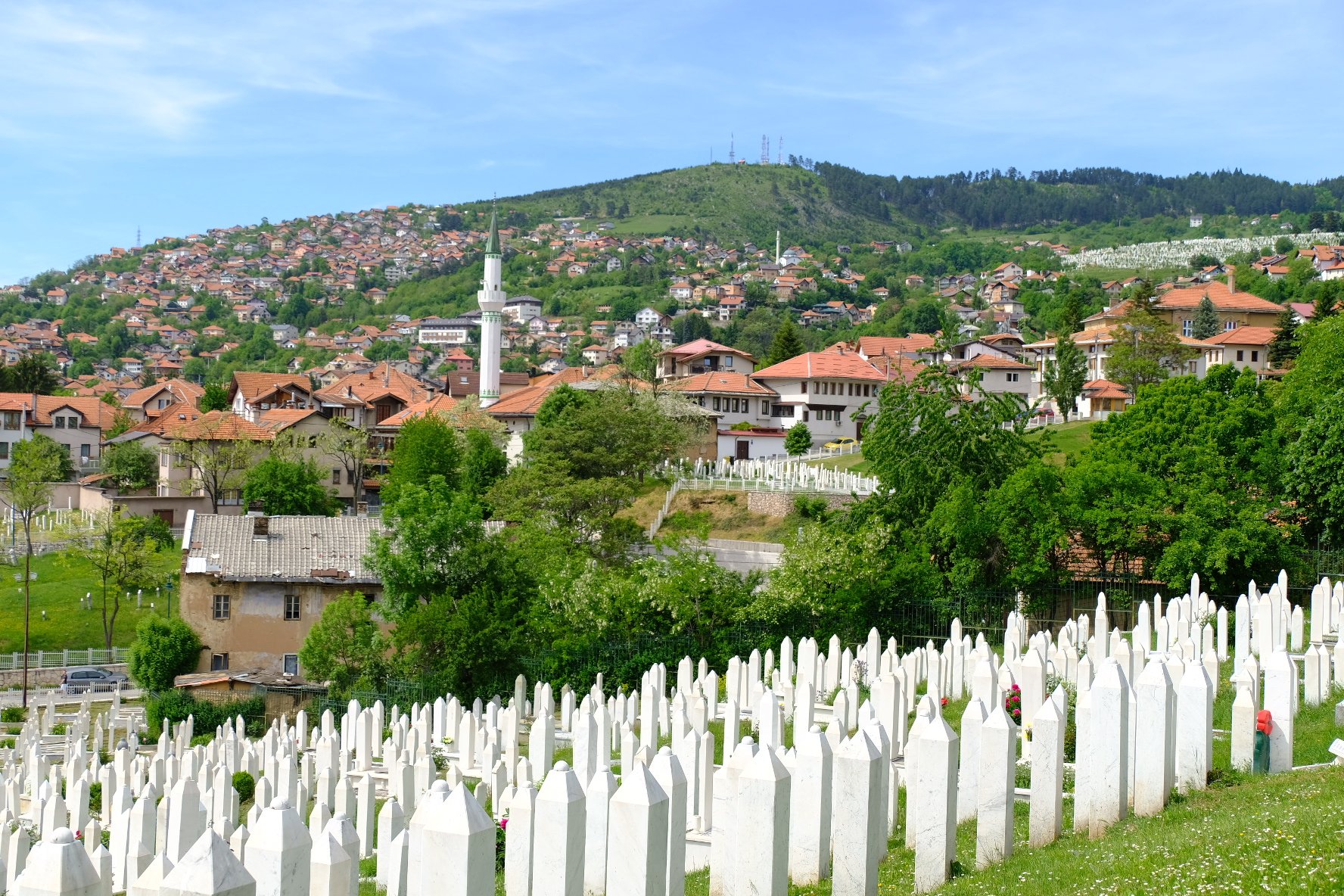

LEAD YOUR OWN GROUP OR JOIN A PILGRIMAGE TO BOSNIA & HERZEGOVINA
Meet and engage some of the world’s most experienced peacebuilding practitioners
Delve into local culture, history, and peace work alongside Bosnian peacebuilders, students, and faith actors
Become part of a worldwide peacebuilding movement by learning how to work for peace in your own community
What is the pilgrimage?
The Catalyze Peacebuilding Pilgrimage is an immersive learning experience in Bosnia & Herzegovina (BiH). Participants will learn from Bosnian peacebuilding practitioners and alongside Bosnian participants.
You will learn about the rich history of interethnic and inter-religious respect and collaboration in BiH, recognize the ways in which faith and ethnicity were utilized during the Bosnian War, and learn from local peacebuilding practitioners about how we can bridge divisions and work as peacebuilders across social divisions.
You can help design the pilgrimage. In the past, we have worked with church groups, universities, students, and adults to organize experiences that are custom-made based on the peacebuilding challenges and questions your group is interested in learning about.
You will take a few days in and around Sarajevo to orient yourselves to the new time zone and learn some basics about BiH, after which you will be joined by local participants from both BiH and the Balkan region for the remainder of the pilgrimage. Interactions between local and international participants enrich everyone’s learning experience as we meet local peacebuilders, reflect together about the common challenges we face, and learn to listen actively to one another’s diverse stories and life experiences.
Finally, you will apply what you are learning in BiH to your own home context by discussing with both Bosnian and international participants about practical next steps we can all take, whether we are just getting started or building more momentum in our peacebuilding work.
IF YOU WOULD LIKE TO INQUIRE ABOUT ORGANIZING A PILGRIMAGE OR JOINING A GROUP, FILL OUT THE INTEREST FORM
(Scroll down for more trip info)

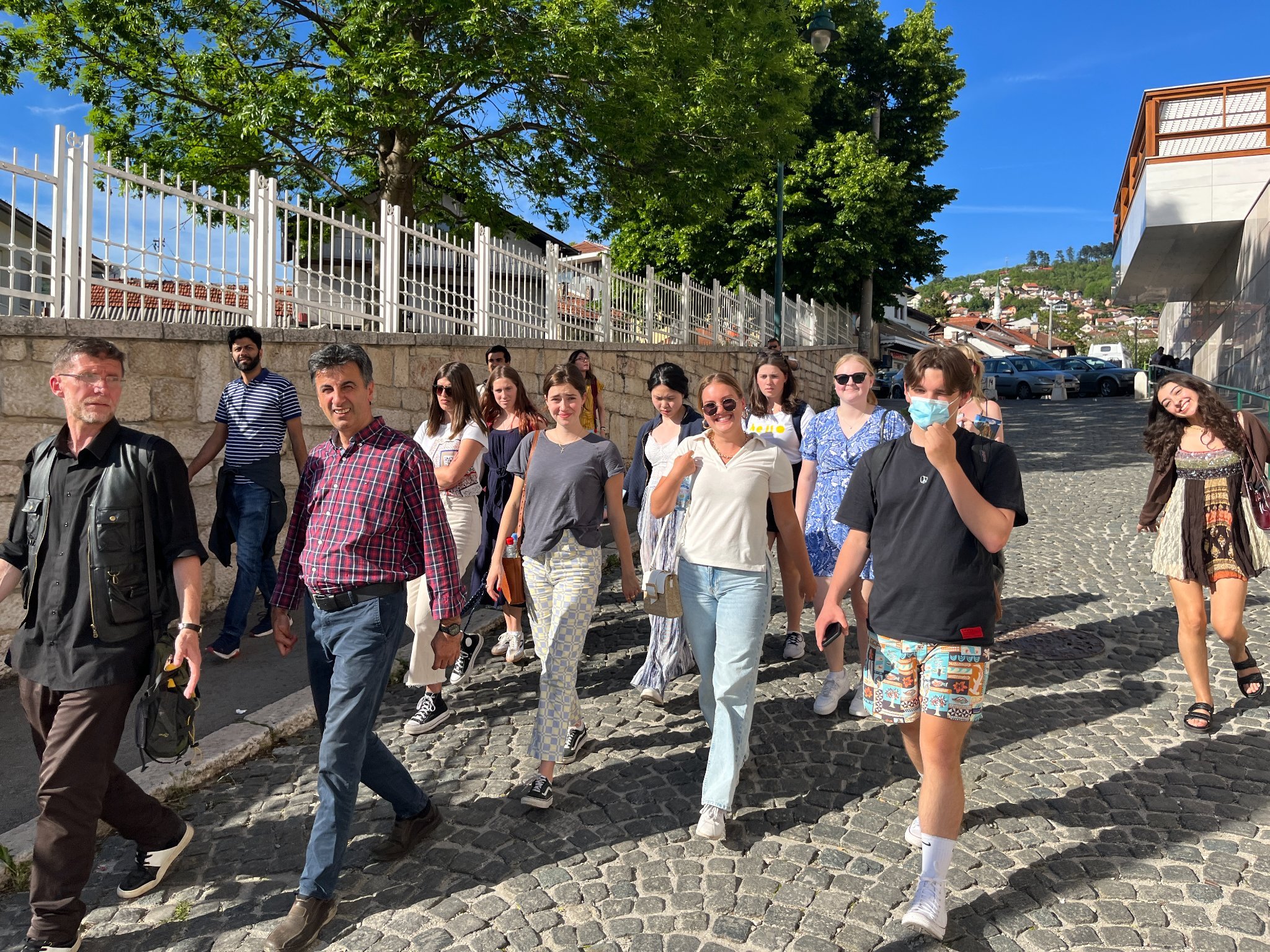
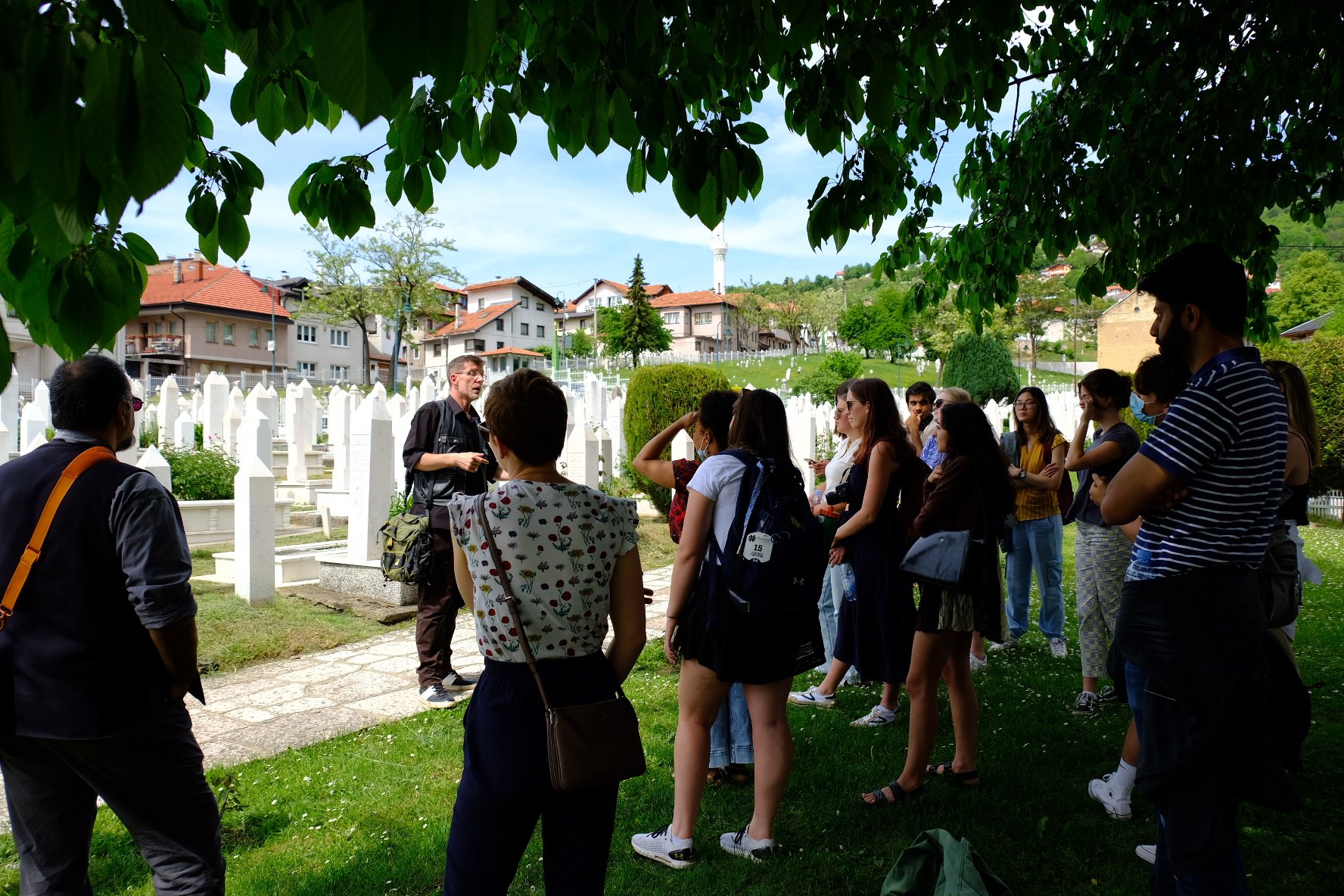
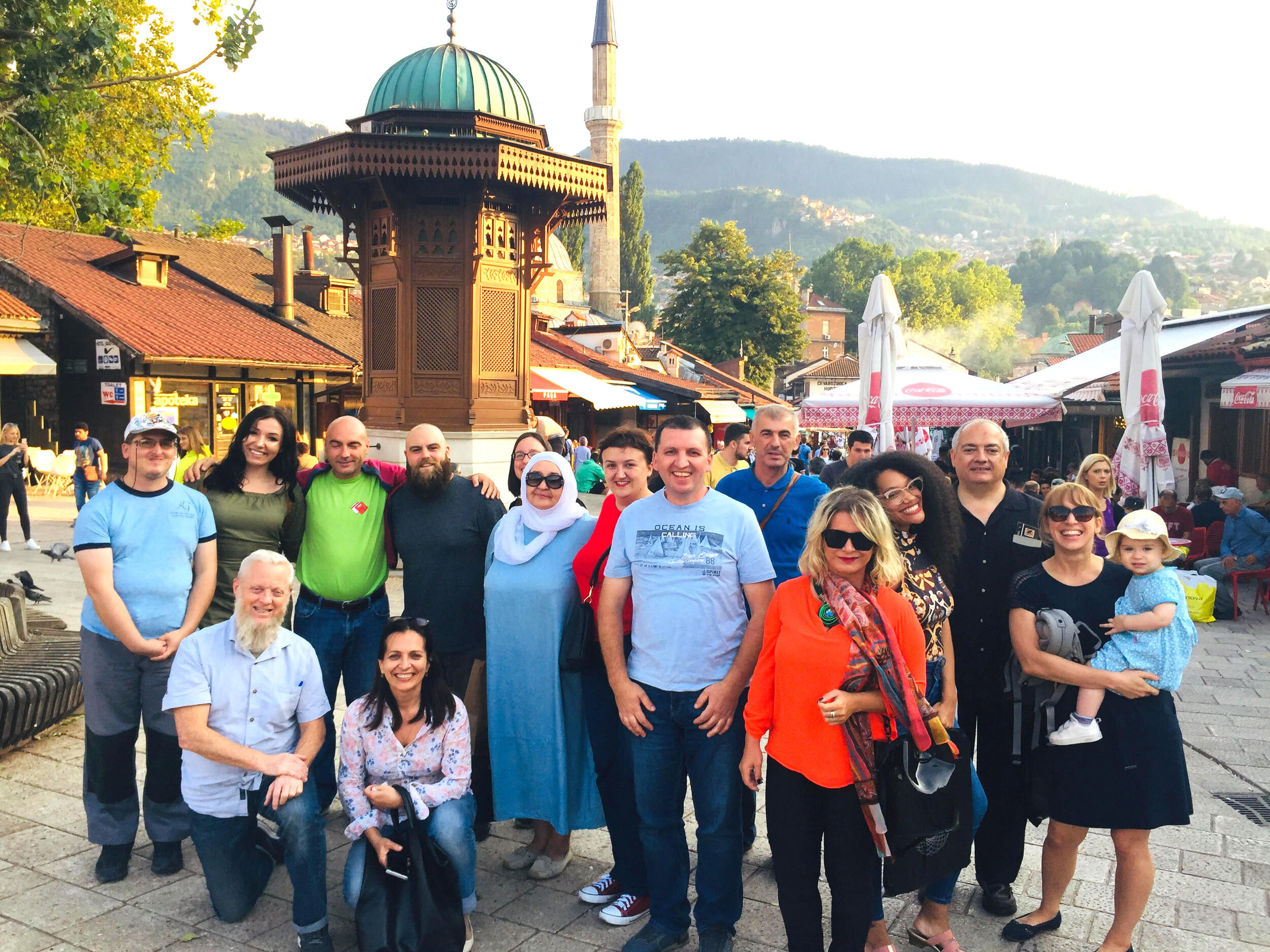
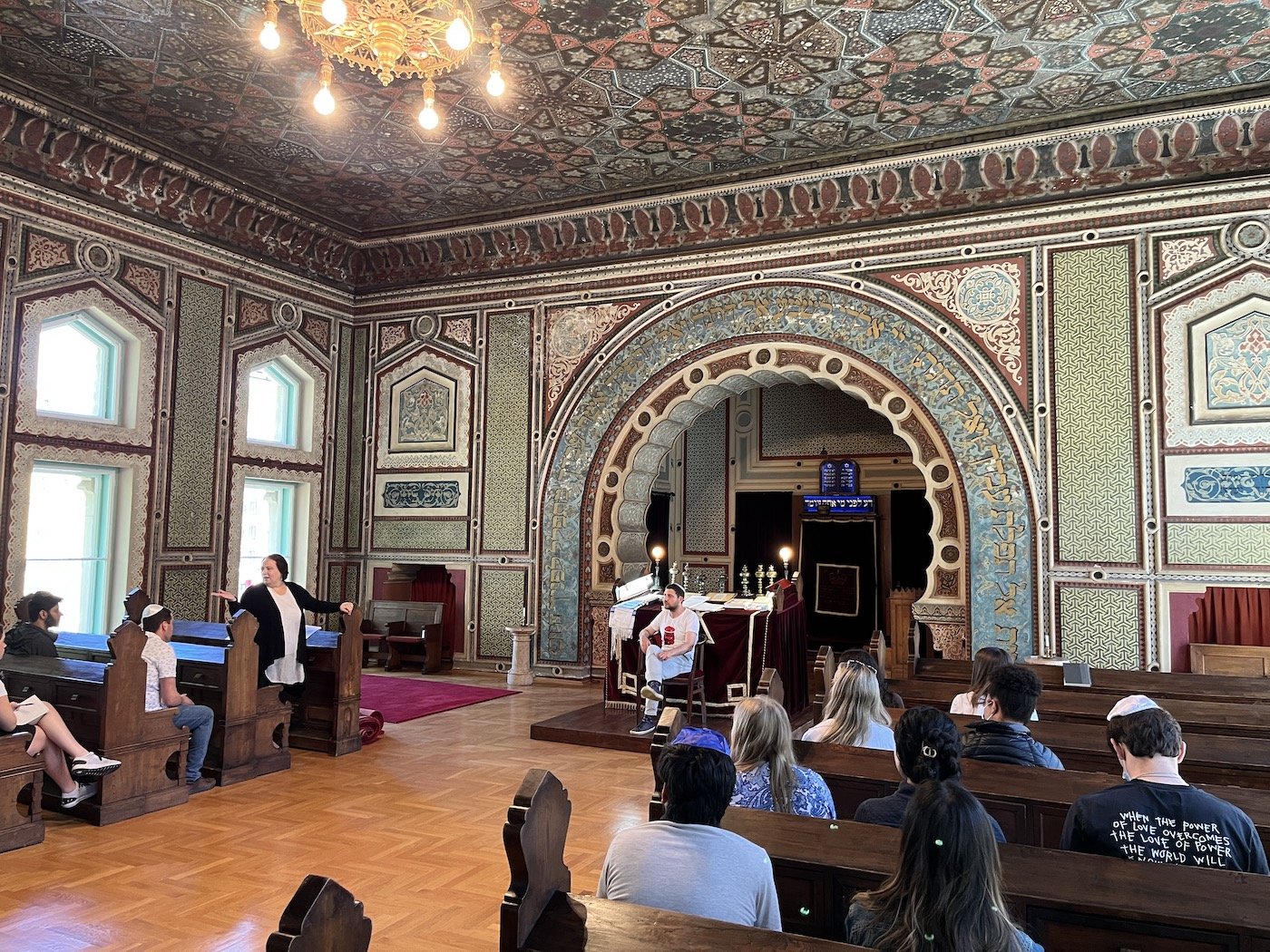


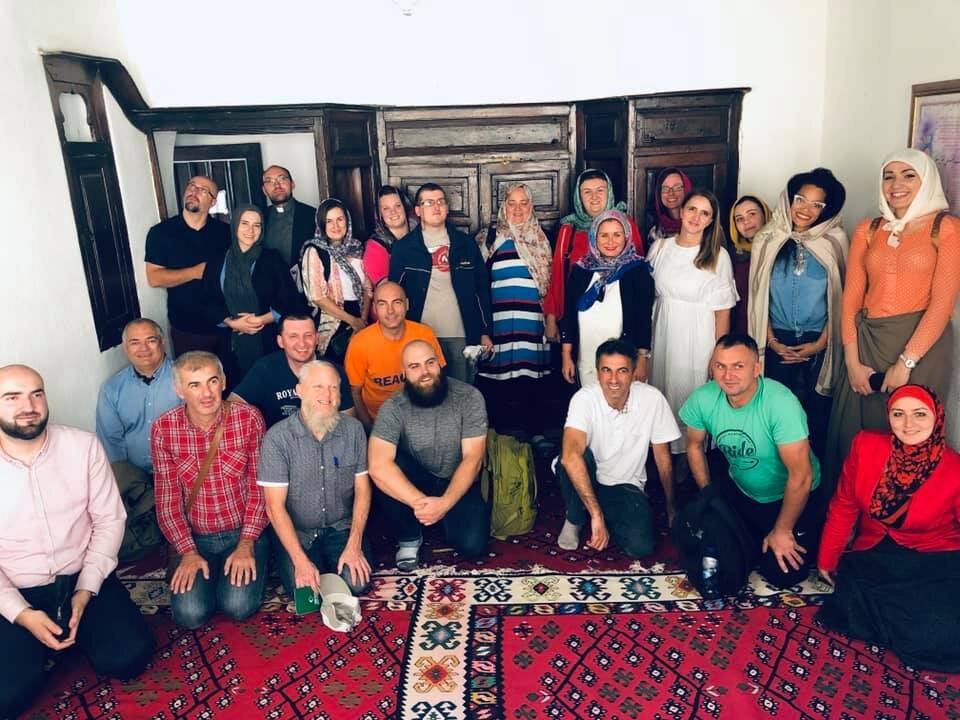

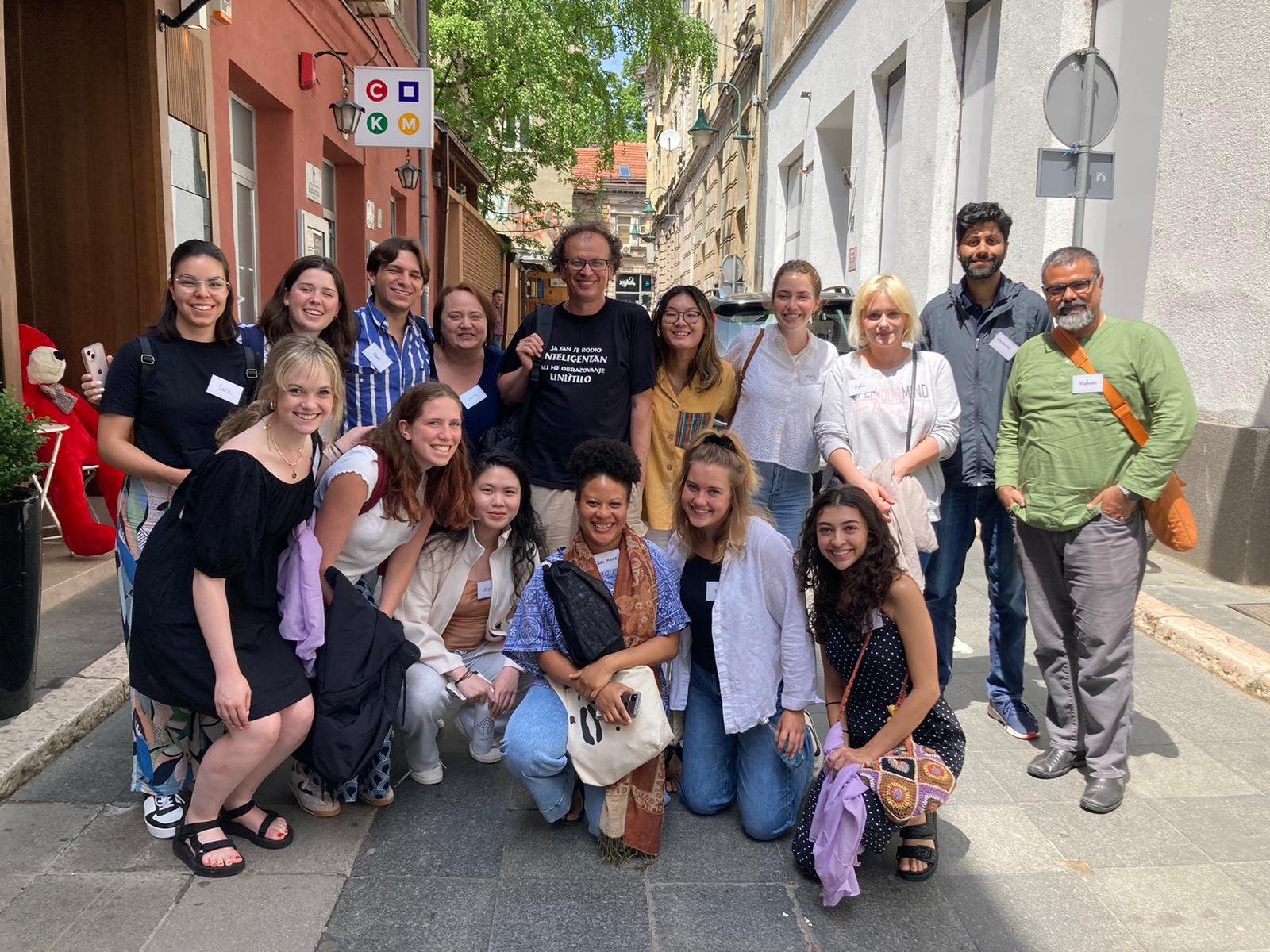
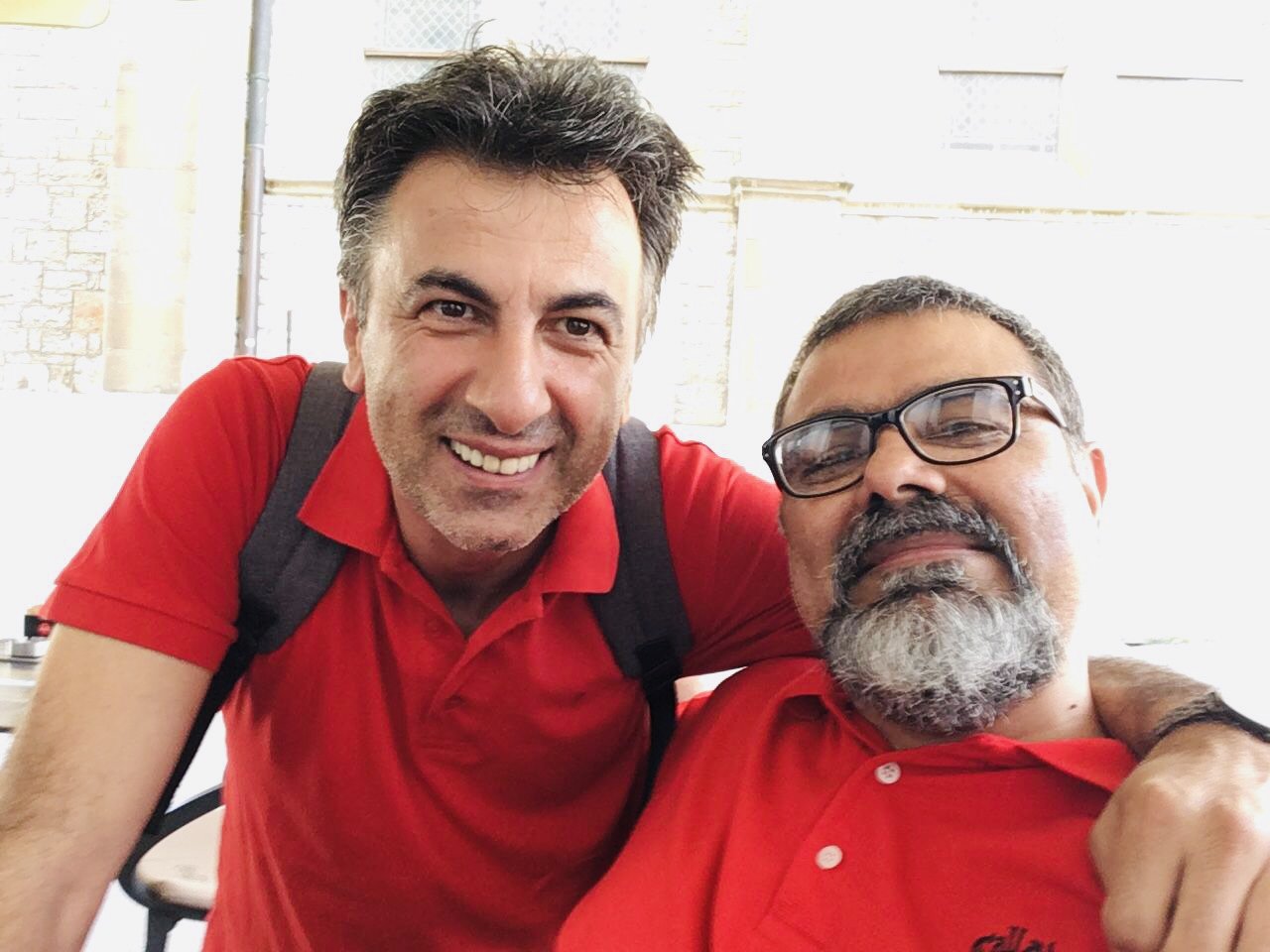
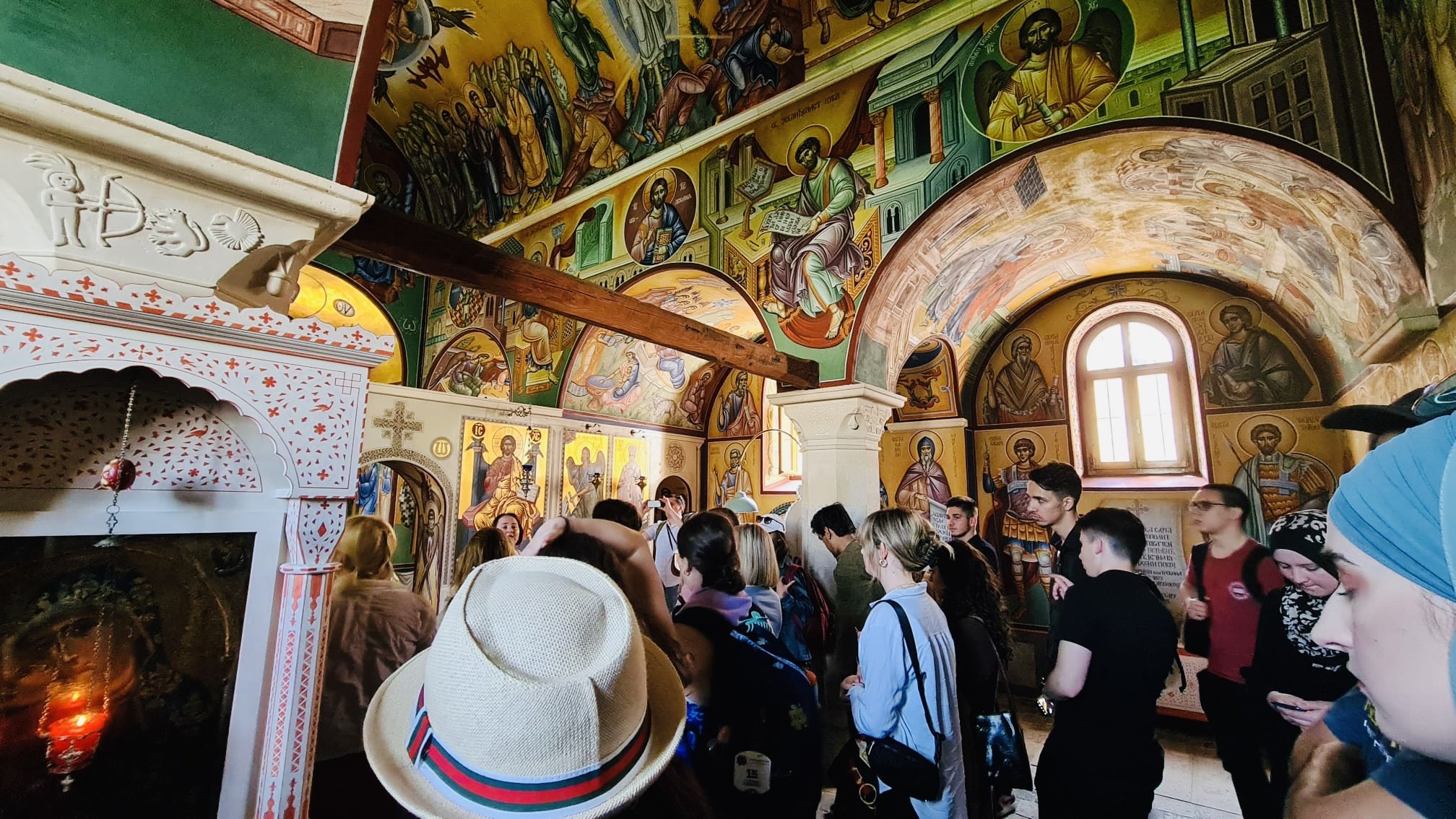

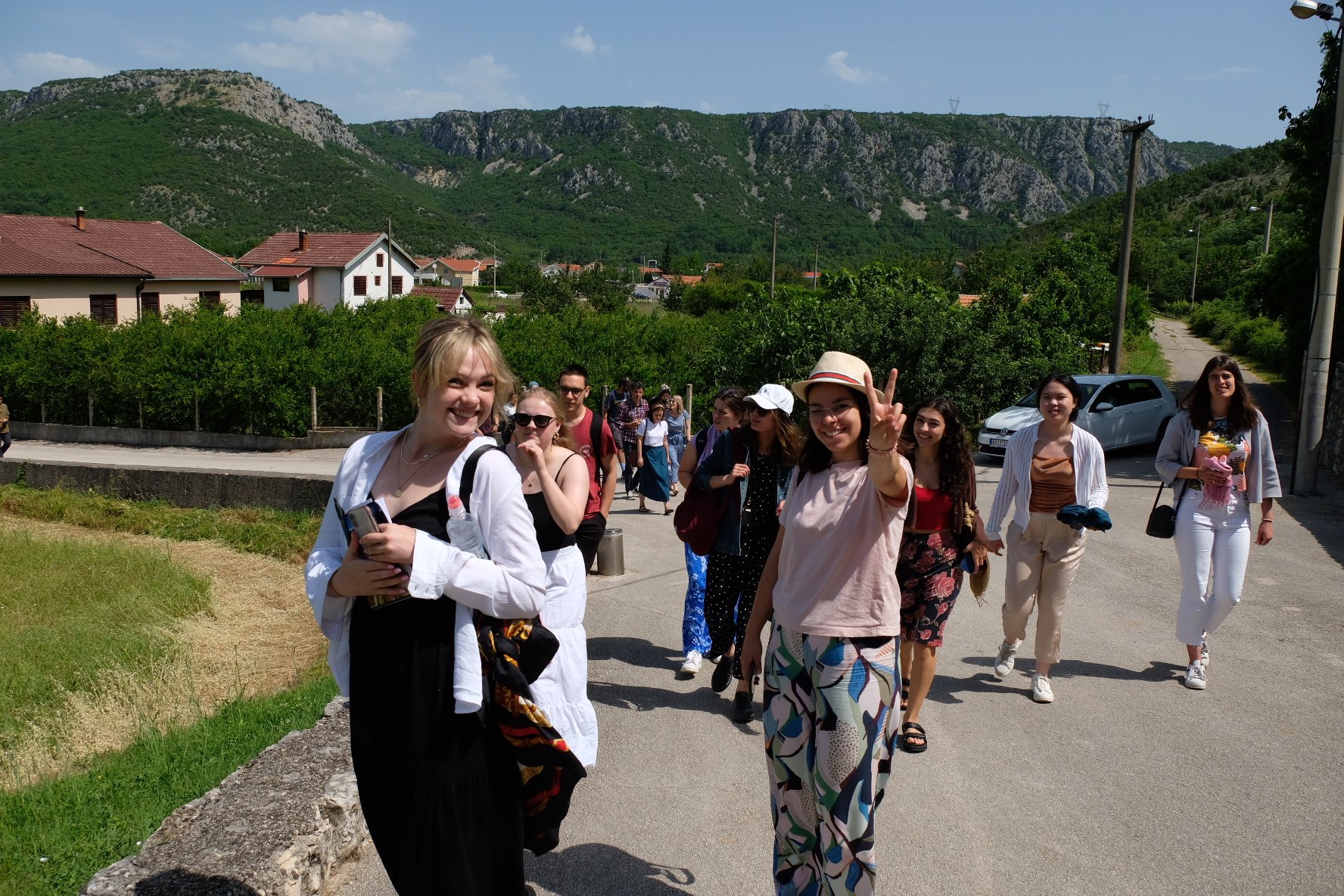
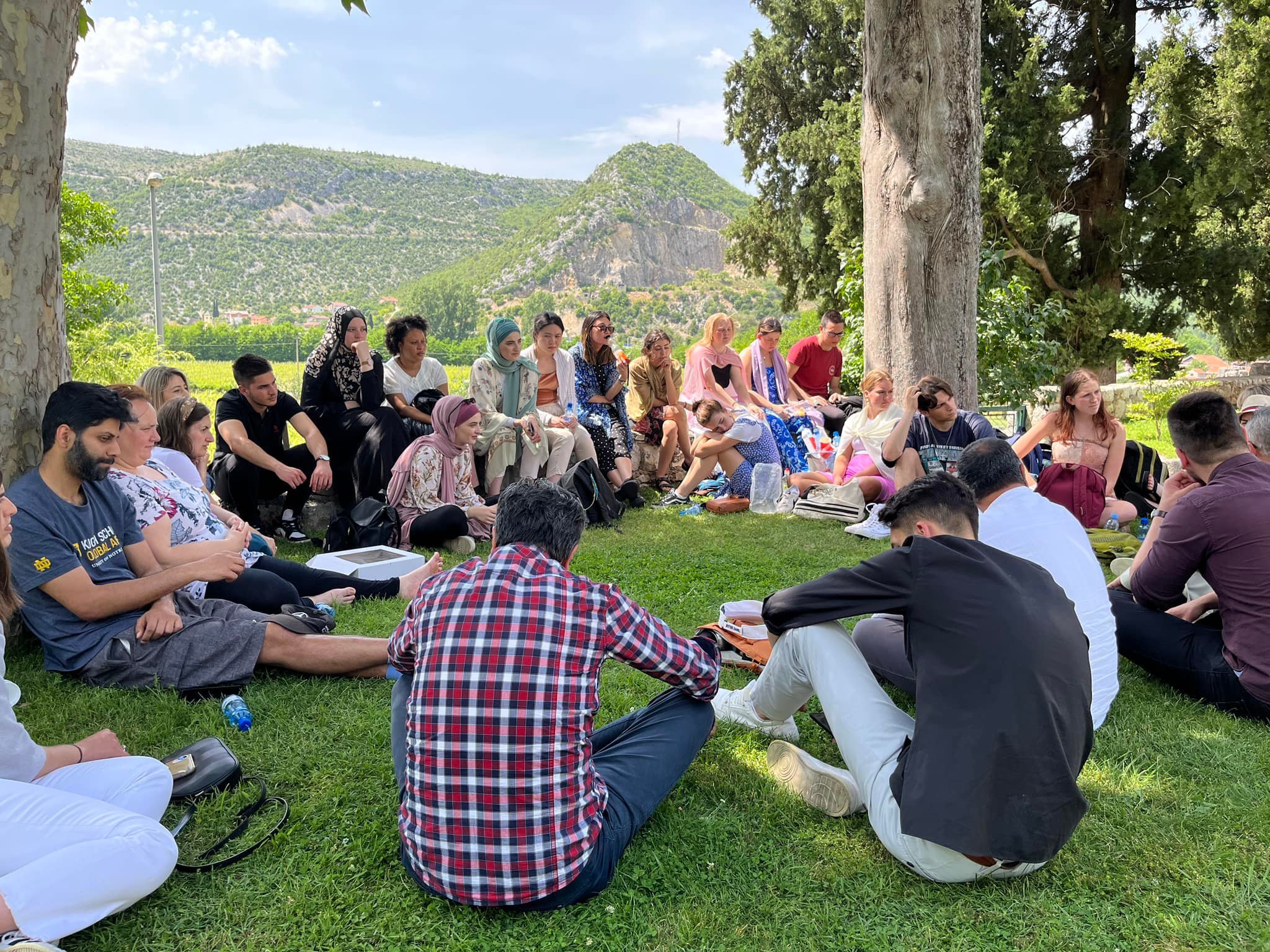
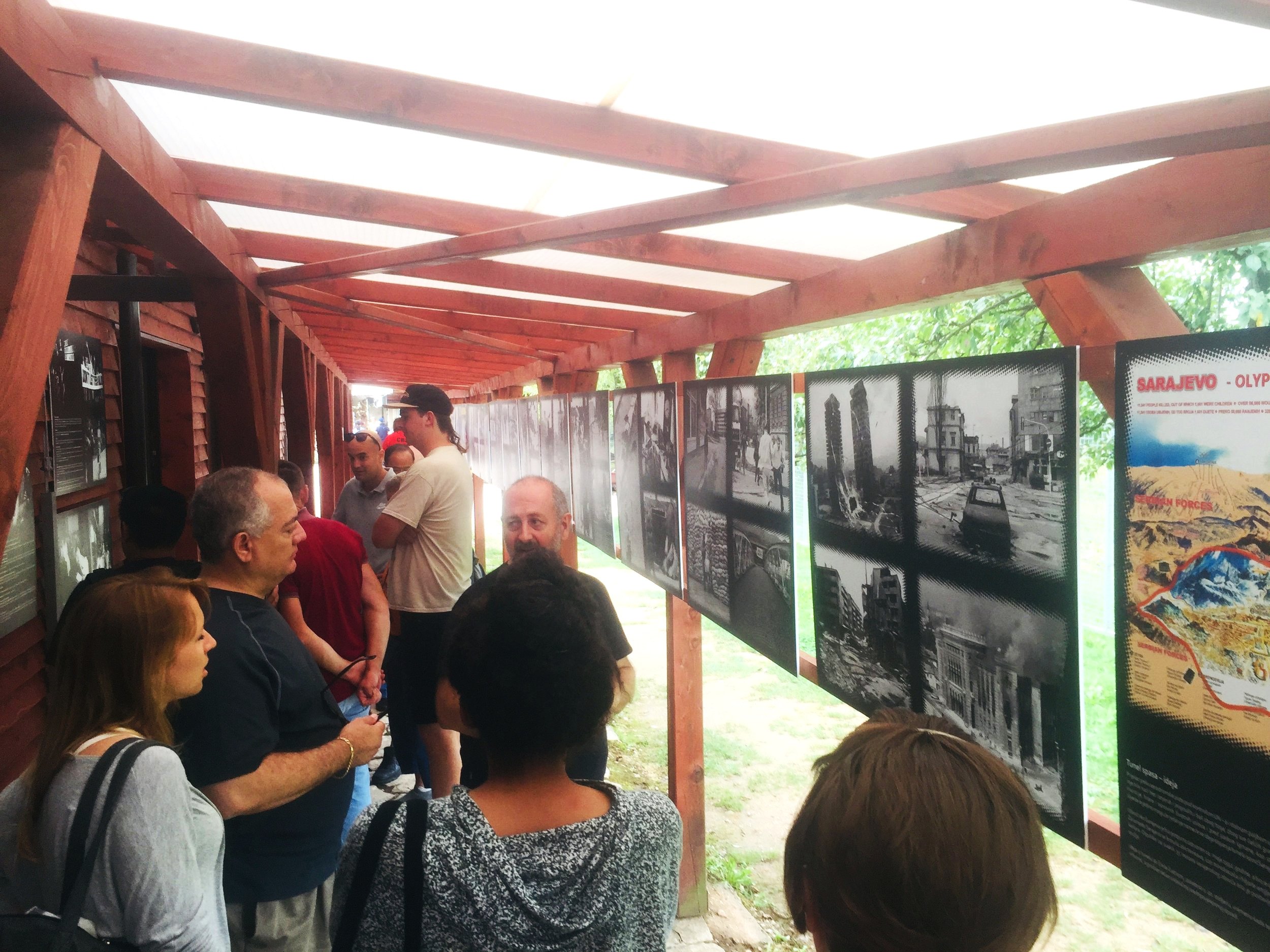
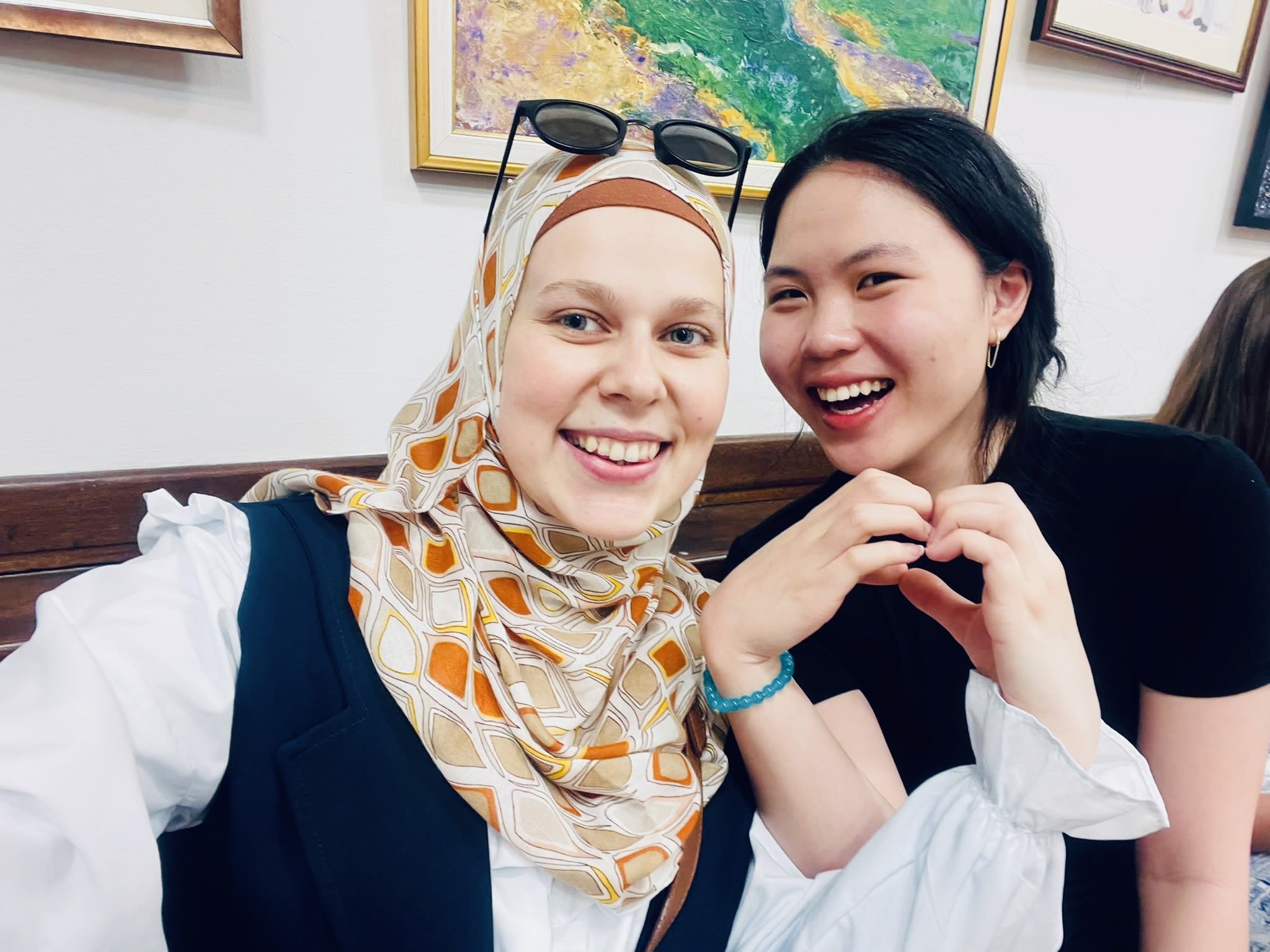
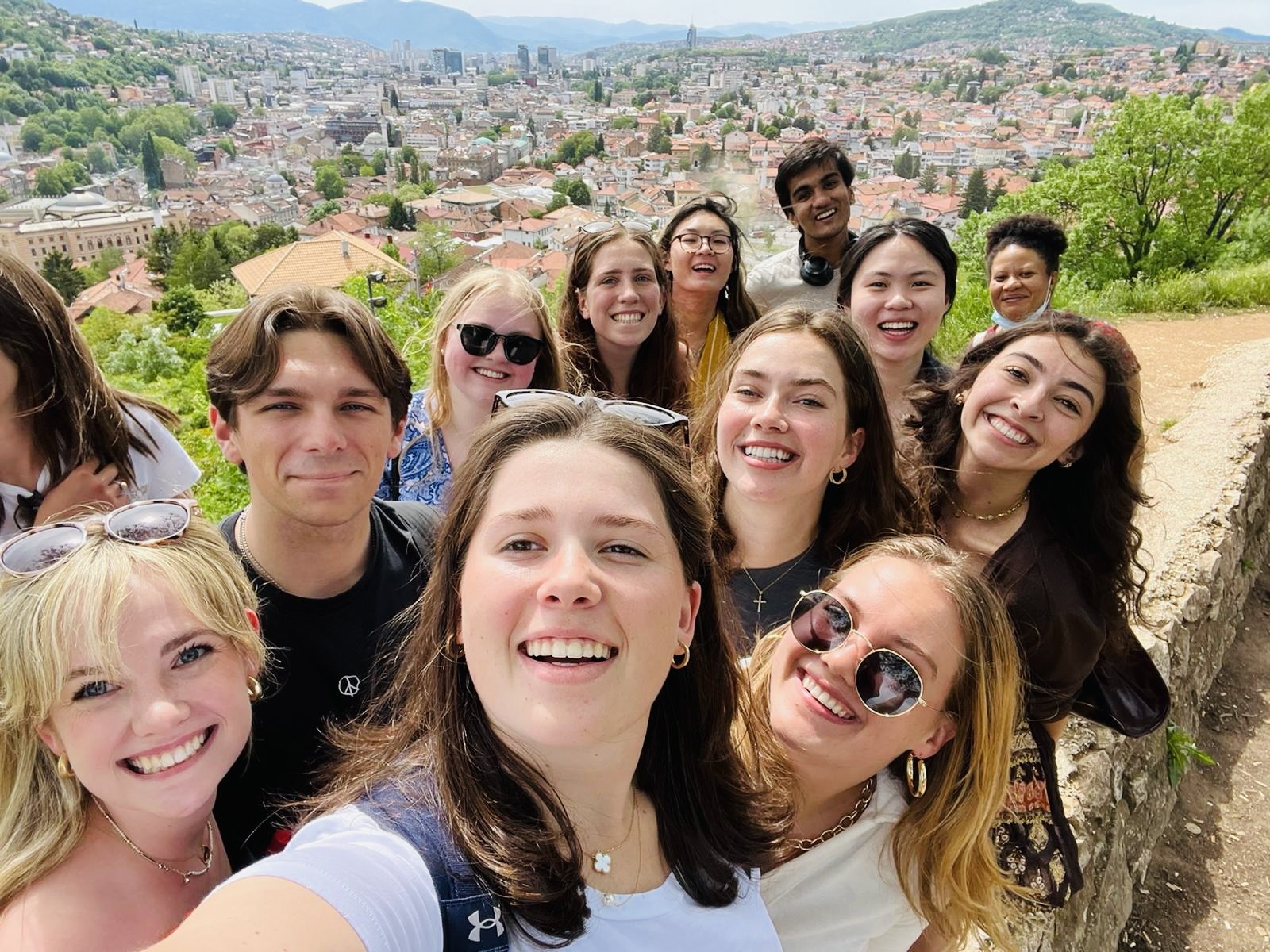
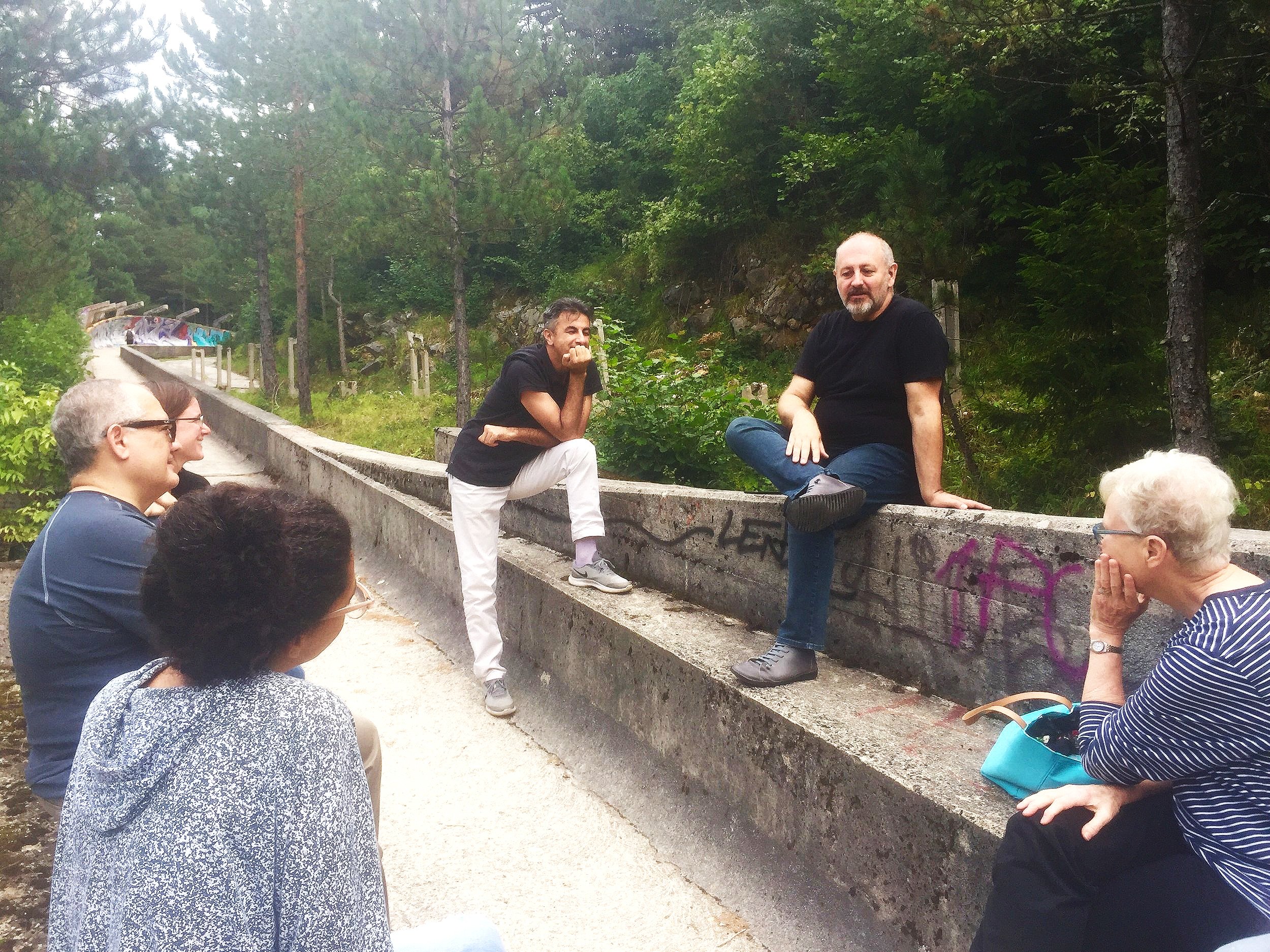
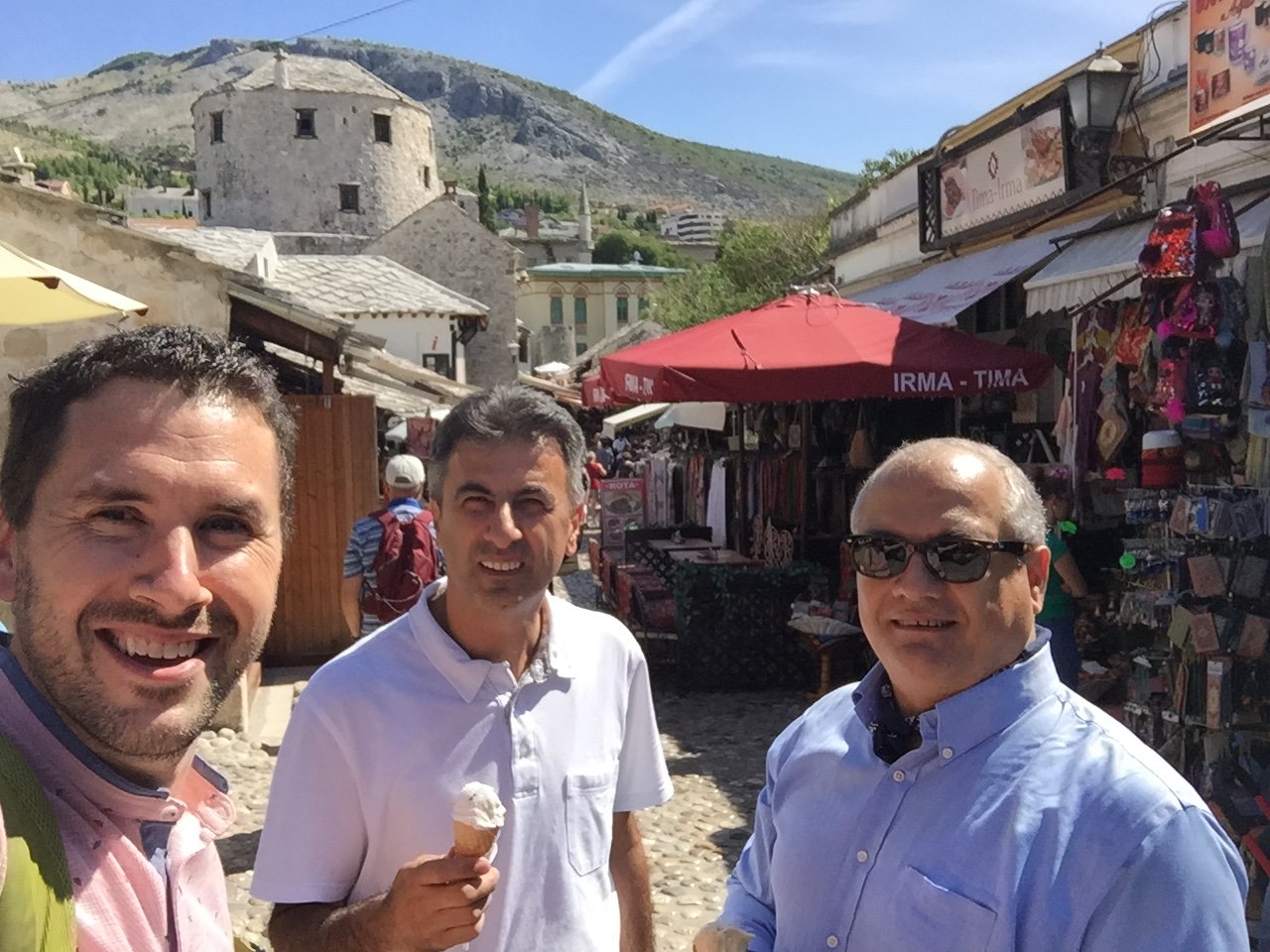
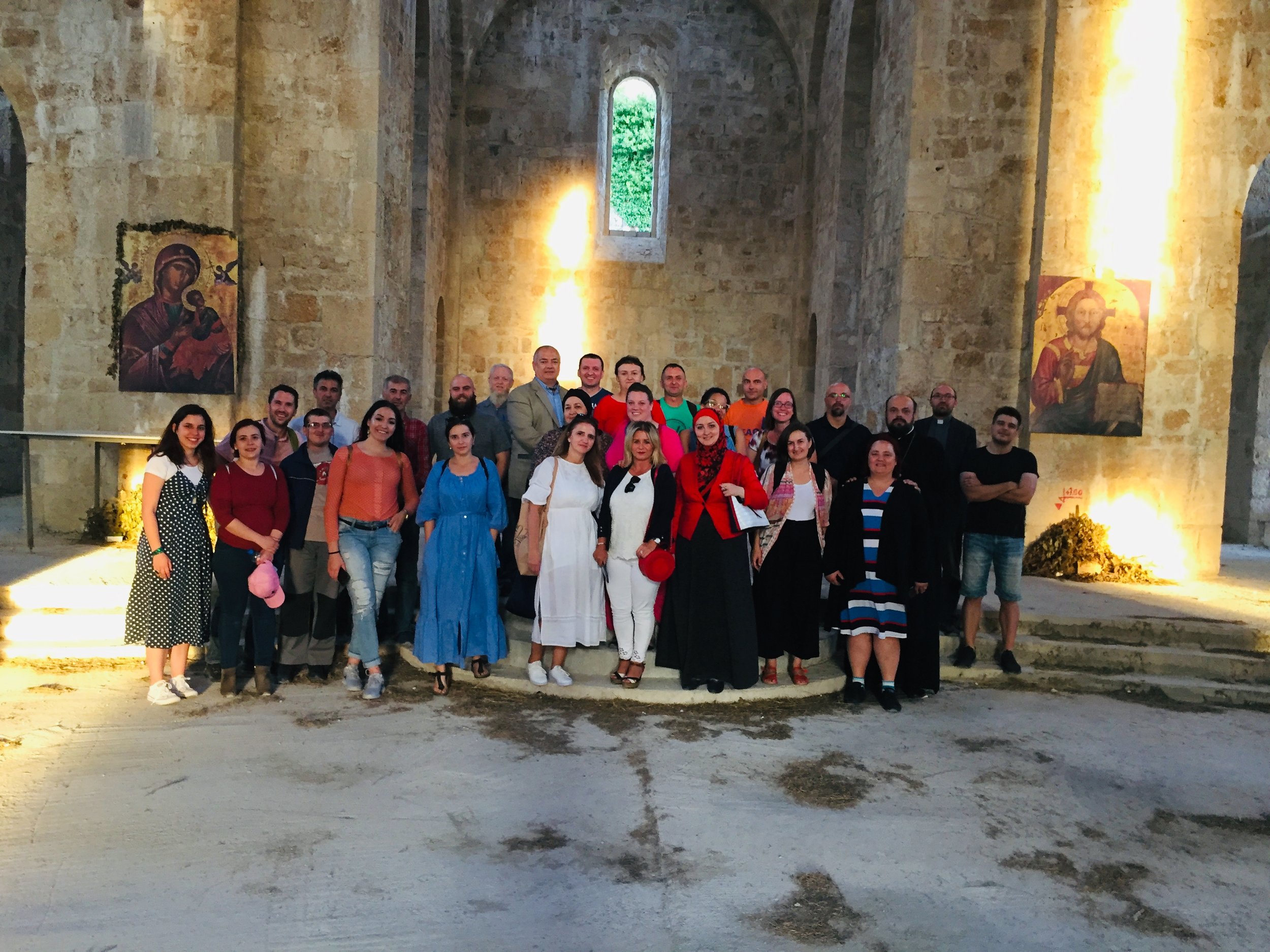
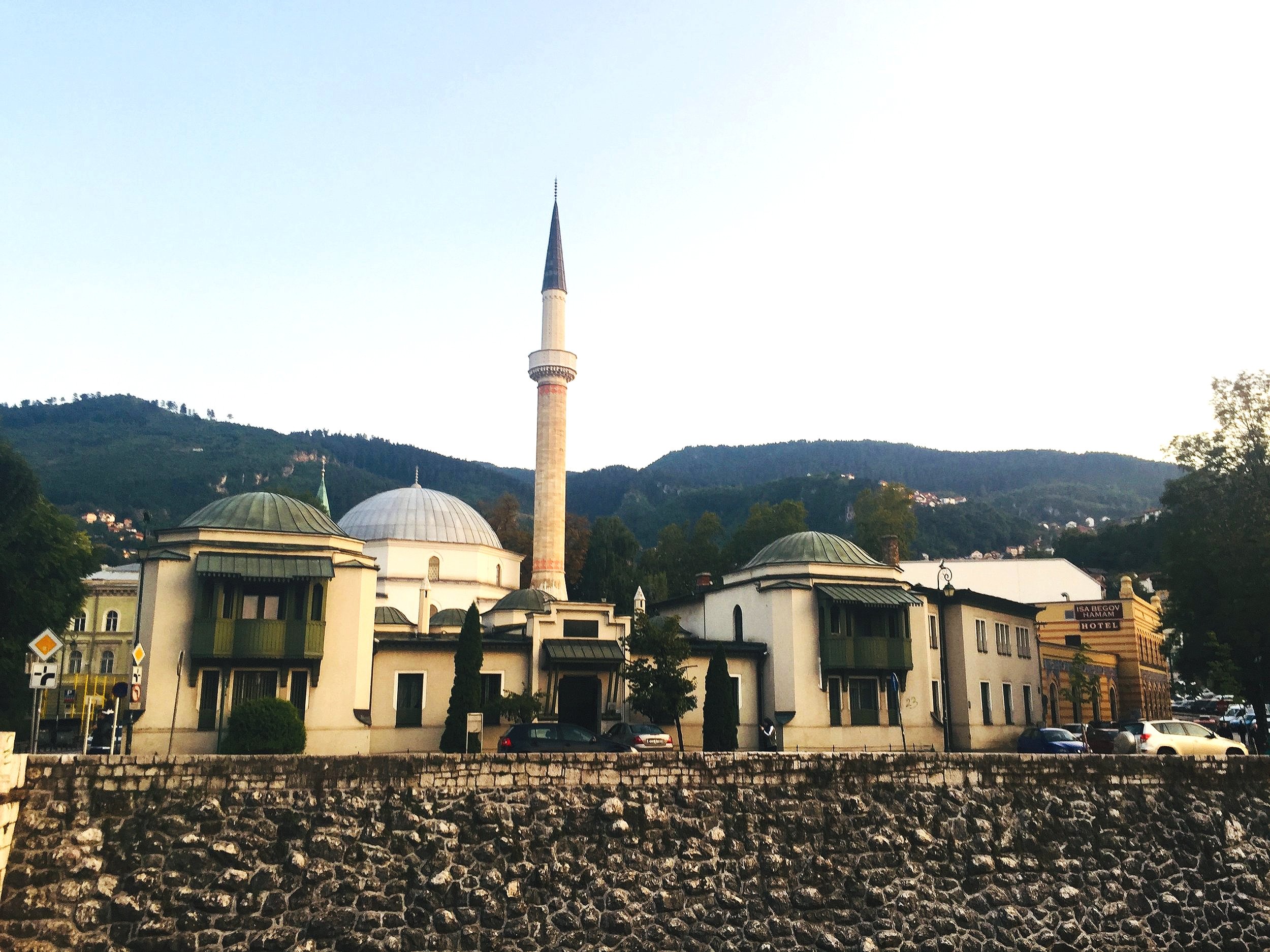

“This type of collaborative trip is the way of the future. We must all learn to live out the Gospel in this way everywhere.”
-2019 Participant, USA Pastor
-
Pre-pilgrimage preparatory calls will be scheduled to introduce the BiH context and history and the basics of interethnic and interreligious peacebuilding.
Group leaders will help to design the pilgrimage and tailor it for the group they are leading to BiH. Typically, the pilgrimage lasts about 8-10 days, with the first 2-3 days in and around Sarajevo learning about its history. After a few days to adjust to the new time zone and learn some basics, local participants from both BiH and the Balkan region will join the group for the remainder of the pilgrimage.
-
Our global community seems more fractured and divided than ever, with religion and ethnicity often factoring into social divisions and contributing to a climate of distrust, polarization, and fear. Bosnia & Herzegovina is no stranger to the political weaponization of religion and ethnicity, but it also has a long history of intergroup respect and collaboration across differences. For that reason, BiH is home to a unique generation of peacebuilders who grew up with a deep affection for their ethno-religious neighbors but who have also been dealing with alternative facts, dueling narratives, inflammatory rhetoric, and the political weaponization of various identities for the past 30 years. These peacebuilders have survived and overcome a great deal, and their wisdom and experiences in dealing with the challenges and opportunities of peacebuilding across ethnic and religious boundaries can inspire and shape peacebuilding approaches elsewhere in the world.
-
Our pilgrimages are generally designed for groups who come from the same community. If you are a church pastor, university professor, or a community leader that would like to bring a group, please contact us or fill out the Catalyze interest form. If you are an individual, couple, or small group that has heard about the Catalyze Peacebuilding Pilgrimage and would like to join another group, please fill out the interest form and we will determine if there is a relevant group that may be possible for you to join.
Church groups – Many Christians are trying to reimagine a more Christlike way of living out our Christian vocation in the world. Peace-oriented theology and peacebuilding provide us with just such a reimagined Christian purpose and vocation in the world today. Practices of peacebuilding take into account challenging themes like truth, mercy, justice, and forgiveness while teaching us to live with humility and flexibility as we self-interrogate, acknowledge our own blind spots, and discern with those around us about how we can work together toward God’s just peace. The Catalyze Peacebuilding Pilgrimage will provide you and your Christian community with theological foundations and peacebuilding practices to reimagine and live out a renewed sense of Christian vocation and mission back home.
Student, learning, or university groups – On the Catalyze Peacebuilding Pilgrimage, you will not just travel from place to place visiting tourist attractions and museums. You will interact with peacebuilding practitioners, professors, and social psychologists who are on the front lines engaging with peacebuilding challenges and working for positive change in BiH. You will also interact with local pilgrimage participants who are passionate about seeing peacebuilding work advance in their local communities. Each trip is created specifically for your group and will include a variety of exchanges with local community leaders, as well as world-class pedagogy from your Catalyze pilgrimage facilitators.
-
The Catalyze Peacebuilding Pilgrimage includes three pre-pilgrimage preparatory Zoom calls covering Bosnian history and introductory peacebuilding concepts; the pilgrimage itself (approximately 8-10 days); and post-trip debriefing and follow-up.
-
Each Catalyze Peacebuilding Pilgrimage is a unique experience tailored to the specific group and their requests. We will visit multiple locations and meet with a variety of different people on every trip. A sample itinerary is included below and can be tailored more or less to focus on religious or socio-cultural aspects of social divisions and peacebuilding efforts.
Preparatory Zoom Calls: 2-3 sessions recommended
Understanding Bosnia & Herzegovina basics
Peace-oriented theologies and/or an introduction to conflict transformation
Dialogue, dignity, and dealing with competing BiH histories
10-day sample itinerary*
Day 1 - Arrival and orientation
Day 2 - Tour Sarajevo's old city; War Childhood Museum; Cable Car to Trebević (Olympic Mountain); Evening prayers & Muslim hospitality
Day 3 - Visiting Srebrenica Memorial Center or the Srebrenica genocide museum; Local talk and discussion with Serb political analyst and psychologist: Competing narratives & alternative facts
Day 4 - Review of group narratives and peacebuilding principles and practices in preparation for collaborative experience with diverse local group
Day 5 - Nonviolent communication and teambuilding with Bosniak Muslim peacebuilders; Identity workshop with Center for Peacebuilding
Day 6 - Day trip to Mostar & visit to Žitomislići Orthodox monastery
Day 7 - Bosnian Protestant peacebuilding trainer and psychotherapist on group narratives and cycles of trauma; team-building activities
Day 8 - Visit to Franciscan community; Visit to local mosque; women and peacebuilding
Day 9 - Peacebuilding and exclusivism; practical application
Day 10 - Goodbyes and departure
-
What is the approximate cost? Per-person trip costs vary, starting at about $2,000 USD per person. Group size, hotel/meal standard, and the length of stay all affect the price.
What is included in the cost? Hotel accomodation, all meals and non-alcoholic beverages, excursion costs, transfer to/from the airport and all bus transportation, museum entrances, speaker and guide honorariums, and Catalyze coordination and facilitation.
A portion of your payment supports the work of Bosnian peacebuilders. Thank you!
What is excluded from the cost? Airfare, health and travel insurance, gifts, additional gratuities, personal items, incidentals, short incidental taxi rides around Sarajevo, and anything not mentioned in “included” above. Also any additional nights due to flight itineraries or unforeseen changes to flights.
-
We see this pilgrimage as a critical first step to transforming our world and its conflicts, for both international participants and local Bosnian participants. Peace Catalyst International is not a travel agency; we are a peacebuilding organization. We hope and expect many of our Bosnian and international alumni to go on and become peacebuilders in their home contexts and beyond. Thus, we aim to make these experiences available to as many people as possible.
Please click here if you’d like to donate to a travel fund, which helps both local Bosnian people as well as internationals with significant influence or people with passion but who could not otherwise afford such an experience to travel with us.
-
Pilgrimages to Bosnia & Herzegovina are typically about 8 full days on the ground, bookended by 2-3 travel days. As the trip is an immersive group experience we require participants to arrive on the same day for our welcome session and depart after our final session. Participants may choose to come early or stay afterwards at their own expense.
-
Our experience has shown us that transformation is typically “stickier” for communities who travel and learn together, therefore our pilgrimages are generally designed for groups who come from the same community. If you are a church pastor, university professor, or a community leader that would like to bring a group, please contact us or fill out the Catalyze interest form.
If you are an individual, couple, or small group that has heard about the Catalyze Peacebuilding Pilgrimage and would like to join another group please fill out the interest form and we can determine if there is a relevant group for you to join.
-
Safety of our participants is our top priority. We have deep, ongoing friendships with all our local partners, and we have security protocols in place. Bosnia & Herzegovina has not been an active conflict zone for some time and incidents of terrorism and violence have been few and far between (typically politically motivated, with far fewer incidents than in the USA or elsewhere in Europe). However, all participants must sign liability waivers acknowledging risks that always exist.
-
The trip involves a lot of walking and long days with multiple meetings and tours. We do our best to cater to all ages and abilities, so please be in touch if you have specific concerns.
Past Speakers
Dr. Ahmet Alibašić was educated in Kuala Lumpur and Sarajevo. Currently he is Associate Professor at the Faculty of Islamic Studies, University of Sarajevo, teaching Islamic culture and civilization courses. Alibašić also heads the Center for Advanced Studies in Sarajevo and actively participates in inter-religious dialogue. He is author of a book on Islamic opposition in the Arab world, wrote several articles on the subject, and edited books dealing with Islam in Europe, human rights in Islam and the Muslim world, and church-state relations. Most recently he is one of the editors of the Yearbook of Muslims in Europe and the Journal of Muslims in Europe.
Friar Ivo Markovic was ordained a priest in the Franciscan Order in 1976. He worked as a parochial vicar before joining the Franciscan Seminary faculty in Sarajevo and working to prevent conflicts between Croats and Bosniaks and organizing humanitarian efforts during the Bosnian War. After the war, Fra Marković started reconciliation projects at the monastery of St. Anthony, established an interreligious nonprofit “Oči Oči (Face to Face),” and founded the internationally acclaimed interfaith choir, Pontanima, that continues to provide a witness to the possibilities of establishing a multicultural and interreligious community of friends. In 1998 Fra Ivo received the first Peace Activist Award from the Tanenbaum Center of Interreligious Understanding in New York City. The backbone of Fra Ivo's work is the belief that Bosnia and Herzegovina, as a meeting place of civilizations, religions, and cultures, has a powerful common identity that connects Bosnian society into a functional society that can be a model for a unified Europe.
Vahidin Omanović received his Master’s degree in International Relations with a concentration in Conflict Resolution at the School for International Training in Brattleboro, Vermont. In 2004, Omanović co-founded the Center for Peacebuilding in Bosnia and Herzegovina, which seeks to rebuild trust and foster reconciliation among the people of Bosnia as well as support peace processes in other countries that have suffered from violent conflict. He has taught peace workshops and trainings throughout the world. In 2011, the Threshold Foundation from Germany honored Omanović with the 5th International Bremen Peace Award, naming him the year’s “Unknown Peace Worker.” In 2014, at the Center for Peacebuilding he won a Tomorrow’s Peacebuilder peace award given by Peace Direct, UK. In 2015, he was awarded the Cohen Center’s Susan J. Herman Award for Leadership in Holocaust & Genocide Awareness (Keene, NH, USA). Omanović has been a guest faculty member at Bennington College in Vermont each spring from 2017-2021.
Dr. Srđan Puhalo had a happy childhood growing up on a farm in Kalinovik in the Socialist Federal Republic of Yugoslavia. As a youth he participated in Yugoslav "youth work" actions (voluntary youth labor activities to build public infrastructure such as roads, railways, and public buildings), visited the Jasenovac concentration camps, and regularly competed in Tito's “Paths of Revolution.” He received his master's degree in Social Psychology in Banja Luka and completed his doctorate in Sarajevo in 2012. He now works as the head of the research sector at the PR Communications and Marketing Agency Prime Communications and is well known for his sharp, witty, and ruthless social critique of Bosnian politics and nationalism. Puhalo has published numerous articles, research studies, and books.
After living through the war in Bosnia & Herzegovina as an internally displaced person, Amela Puljek-Shank has worked for almost three decades in the field of peacebuilding as a facilitator, trainer, and manager. She specializes in trauma healing, recovery, and in the areas of worker care, compassion fatigue, and burnout. Currently, she works as a consultant to international organizations. She has created and led over 80 interactive trainings, and her publications include “The Contribution of Trauma Healing to Peacebuilding in Southeast Europe” in Peacebuilding for Traumatized Societies, “Trauma and Reconciliation” in 20 Steps towards Reconciliation, and “Journey of Healing” in Positive Approaches to Peacebuilding.
Mevludin Rahmanović is a trained peacebuilder from the ethnically divided city of Prijedor and a certified Trainer of Trainers (TOTs) in dialogue and nonviolent communication from the Bosnian branch of the Alternatives to Violence Project. In 2000, Mevludin spent a year in the Army of Bosnia and Herzegovina as the Administrative Assistant to the highest ranking officer within the Bihac battery. Mevludin’s work as a peacebuilder began in earnest when he became a father. “I can’t imagine that these same events could happen to my own children. Through this peacebuilding work, I will try everything to change our past for a better future.” Prior to founding the Center for Peacebuilding (CIM) with Vahidin Omanović, Rahmanović received a diploma from the Theological School in Travnik, worked as a primary school teacher of Islamic Studies in Prijedor, and served as an imam for ten years.
Dr. Zilka Spahić Šiljak holds a PhD in gender studies, MA in human rights, and BA in religious studies. She is the author of numerous scientific articles and several books published in Bosnian and English which address cutting-edge issues involving human rights, gender, politics, religion, education, feminism, and peacebuilding. Spahić Siljak has more than fifteen years of experience in academic teaching and work in governmental and non-governmental sectors. From 2006-2011 she ran the Religious Studies Program at the University of Sarajevo, after which she was a fellow at Harvard University and Stanford University. She is currently a guest lecturer at the Roehampton University in London and the Faculty of Philosophy, University of Zenica. She also runs Transcultural Psychosocial Educational Foundation (TPO) in Sarajevo which focuses on gender equality, intercultural and interreligious education and peacebuilding.
Have more questions?
Contact Bryan Carey at bryan.carey@peacecatalyst.org.

“My trip to Bosnia and Herzegovina was easily the most impactful experience in my academic career. Why? - the people. Our facilitators, guest speakers, local academic counterparts, and their families went above and beyond to welcome us to their beautiful and complex country. To spend an entire week with a truly generous, humble, kind, and courageous group of people, who acknowledge strength in religious diversity, was a testament to peacebuilding in action. The memories and friends I made on this trip will stay with me, and I am honored and privileged to have had the opportunity to engage equitably as an ally, partner, and learner - and not as an outside expert or spectator. I look forward to applying the lessons learnt, to my career in peacebuilding and global affairs.”
- 2022 Participant, University Student
